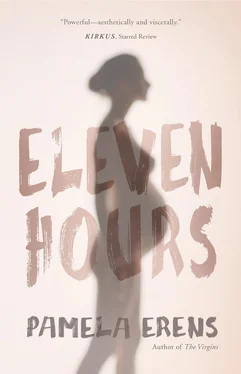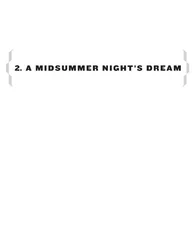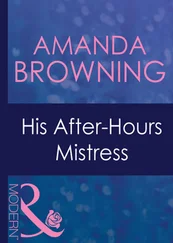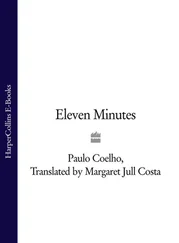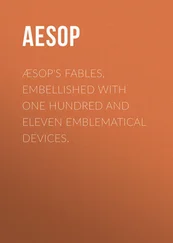Pamela Erens - Eleven Hours
Здесь есть возможность читать онлайн «Pamela Erens - Eleven Hours» весь текст электронной книги совершенно бесплатно (целиком полную версию без сокращений). В некоторых случаях можно слушать аудио, скачать через торрент в формате fb2 и присутствует краткое содержание. Год выпуска: 2016, Издательство: Tin House, Жанр: Современная проза, на английском языке. Описание произведения, (предисловие) а так же отзывы посетителей доступны на портале библиотеки ЛибКат.
- Название:Eleven Hours
- Автор:
- Издательство:Tin House
- Жанр:
- Год:2016
- ISBN:нет данных
- Рейтинг книги:4 / 5. Голосов: 1
-
Избранное:Добавить в избранное
- Отзывы:
-
Ваша оценка:
- 80
- 1
- 2
- 3
- 4
- 5
Eleven Hours: краткое содержание, описание и аннотация
Предлагаем к чтению аннотацию, описание, краткое содержание или предисловие (зависит от того, что написал сам автор книги «Eleven Hours»). Если вы не нашли необходимую информацию о книге — напишите в комментариях, мы постараемся отыскать её.
Eleven Hours
Eleven Hours — читать онлайн бесплатно полную книгу (весь текст) целиком
Ниже представлен текст книги, разбитый по страницам. Система сохранения места последней прочитанной страницы, позволяет с удобством читать онлайн бесплатно книгу «Eleven Hours», без необходимости каждый раз заново искать на чём Вы остановились. Поставьте закладку, и сможете в любой момент перейти на страницу, на которой закончили чтение.
Интервал:
Закладка:
Perhaps the woman under the sheets was once very young and beautiful (at least, she would have been young) and had wished for what the young man had wished for, and now here was her recompense. A quiet muttering rises from beneath the sheet and Lore imagines that the old woman is dreaming of herself with beautiful, lavender-tipped iridescent wings; she is singing all day long for a goddess. It might be lovely if we could have immortality even via hallucination, even the hallucinated immortality of a hallucinated insect.
Sentimental , Julia repeats, of Thomas Eddington’s painting. Okay, okay , Lore replies, rattled, and turns away. Who is she to argue? She is not a maker of things; she does not have that talent. She cannot draw or paint; she plays no instrument; her writing is blunt and practical. Her creative gift, if she has one, is to help children learn how to speak. Into that she pours her patience, her instinct, her ingenuity. That’s all right with you, isn’t it, little one? she asks, touching her belly. Anyway, it’s what you got .
She moves on. There are open rooms with big machines; one is being wiped down by a young man with a face mask hanging loose under his chin. He smiles at her, as if they know each other, and, caught off guard, Lore smiles back. Suppose , she thinks. Suppose it was him I’d sat down next to at the museum … But she is carrying the great weight of a different path and of someone else’s child, and she walks on, her skin warm, her fingers tingling a little.
When Lore and Julia stopped back at the cafeteria for more coffee, putting off parting, Julia told Lore that there was someone she wanted her to meet. “My friend Asa. He needs a girlfriend.”
“And I just happened to show up?”
“No! You would be so right for him. I have the funniest feeling.”
Asa, Julia explained, was her oldest friend. He was handsome and funny and smart and unaccountably unattached. They’d known each other since they were born, their parents had been close at the university. Asa’s and Julia’s fathers were professors of history there; Asa’s mother worked at the university press. Julia’s mother had taught there too before moving to the West. Columbia University! It was very impressive. (Lore’s mother stooped above the gasping lilies. She bent over the stuttering sewing machine.)
Full disclosure , Julia said: She and Asa had been lovers, on and off over the years. They’d lost their virginity to each other. They’d shared their first kiss in kindergarten! But that was all over now. A youthful dependency they’d grown out of. They’d been unhealthily close at times. (Their mothers had carried them side by side in their wombs. Their birthdays, a mere three weeks apart.) The last, disastrous time that they had been lovers was two years ago now; the depression they’d moved in then, the sense of staleness and being unable to make things right, proved that they were meant, for the long term, to be merely the best of friends. And Julia intended to find Asa the perfect match, the person right for him, she repeated. (She herself was in a dreamy romance with Simon, an up-and-comer at his design firm.) Had she mentioned that Asa was devilishly handsome and funny and smart? And a good, good, good person — he worked for the Environmental Defense Fund, saving the air and the oceans.
“The air and the oceans,” repeated Lore. “That sounds like a lot.” But Julia didn’t smile. She was in earnest — Asa was some sort of saint.
Door after door: DO NOT ENTER: TEST IN PROGRESS. Lore wonders what precisely is going on behind these right now, what dark masses are being sought, what ugly secrets explored. Four closed doors in a row. Lore believes she can feel the humming of waves penetrating her skin, jostling and disrupting cells. It might not be good for the baby; she hurries on.
All right, all right, Lore said — she would meet Asa. (But she did not think a saint would be the right person for her at all.) For weeks she put off their get-together. She was in love with her new friend; this Asa was superfluous. But eventually she agreed to meet him at an inexpensive Greek place, his recommendation. She saw at once that he would expect to split the bill, and this pleased her. It suggested that he would not feel entitled to anything in particular. His physicality appealed to her: his disorderly curls and dark eyes and Roman nose, the broadness of his shoulders. He was three inches taller than she was, bearish and with a slow, delighted smile. He had the city quickness, its self-assertion, in his speech and in the movements of his hands. It was true that he wanted to save the air and the oceans, and he began to bore her somewhat with the details. There were so many dilemmas. We had to stop relying so much on foreign oil, and farmers upstate were struggling to get by, you couldn’t begrudge them a chance to make an easier living — but the companies starting to buy drilling rights would eventually tear up the land and poison the waters. The Chinese needed to grow their economy, just as we in the West had had our turn, but their coal plants might be death to the chance to put a brake on global warming. Those were just examples of the big picture; now he got down to details: mercury and triclosan, lobbyists and building codes. He went on too long, in his worrying and his enthusiasm, and then he caught himself and turned the conversation to her. How many kids in her caseload? How do you teach a child to make the sh sound? She showed him, and he practiced in earnest as if he really were a six-year-old who had to do it from scratch, laughing at his own trouble. A man , she thought, not a cocksure boy. The few lovers she’d had were generally able to keep only one opinion in their minds at a time, and believed the definition of being a man was to make you hold that opinion, too. The city had a softening influence on men, Lore observed, without taking away their masculinity. Asa had a deep, hoarse voice that spoke of imperfection, of vulnerability. When he kissed her at her door, his hand, which lightly held her cheek, was tender, but he did not shift to conceal the tight pulse of his erection, and she gave over then; she chose: Yes .
Asa had his own version of the Story of Asa and Julia. Well, Julia, he said, a bit wearily. The longest, longest story. Always Julia had sent him away and called him back. She wanted no one else by her during the year after the rape. He must be near her all the time. And he — he owed her everything; he wished he had died rather than left her to walk that last half block to her apartment (the man had struck her in the head three times before dragging her into the corner of the crumbling Beaux Arts lobby, where she lay, disoriented, until a couple returning from after-theater drinks heard her moaning). There was so little he could do. He brought her gifts constantly — candy, books, flowers, funny little handmade cards announcing his love. He walked her to her therapy appointments, because she cried desperately before them, saying she didn’t want to be made to talk about it anymore, but he, coached by her father, gentled her along, saying it would help her in the end. (In truth, he feared the therapist would drive a wedge between them, push Julia to blame him, awaken her rage.) They began, carefully, to make love again. Then Julia abruptly decided that she was going to Germany to study painting and this had to be goodbye; she might in fact never return. Six months later she was back and they took up where they’d left off — until Julia decided she preferred to be with a goateed fellow who worked in a bicycle repair shop in Brooklyn. It was like that always, at nineteen and twenty-one and twenty-four. Asa would leave docilely when she sent him away, come back when she wanted him again. Like a monk (an exaggeration: he had his affairs; but nearly, nearly) he went into retreat during the hiatuses. Just as she couldn’t seem to fault him in any way for the rape, he couldn’t seem to be angry with her for leaving. She was just — Julia. He loved her. He had always loved her.
Читать дальшеИнтервал:
Закладка:
Похожие книги на «Eleven Hours»
Представляем Вашему вниманию похожие книги на «Eleven Hours» списком для выбора. Мы отобрали схожую по названию и смыслу литературу в надежде предоставить читателям больше вариантов отыскать новые, интересные, ещё непрочитанные произведения.
Обсуждение, отзывы о книге «Eleven Hours» и просто собственные мнения читателей. Оставьте ваши комментарии, напишите, что Вы думаете о произведении, его смысле или главных героях. Укажите что конкретно понравилось, а что нет, и почему Вы так считаете.
